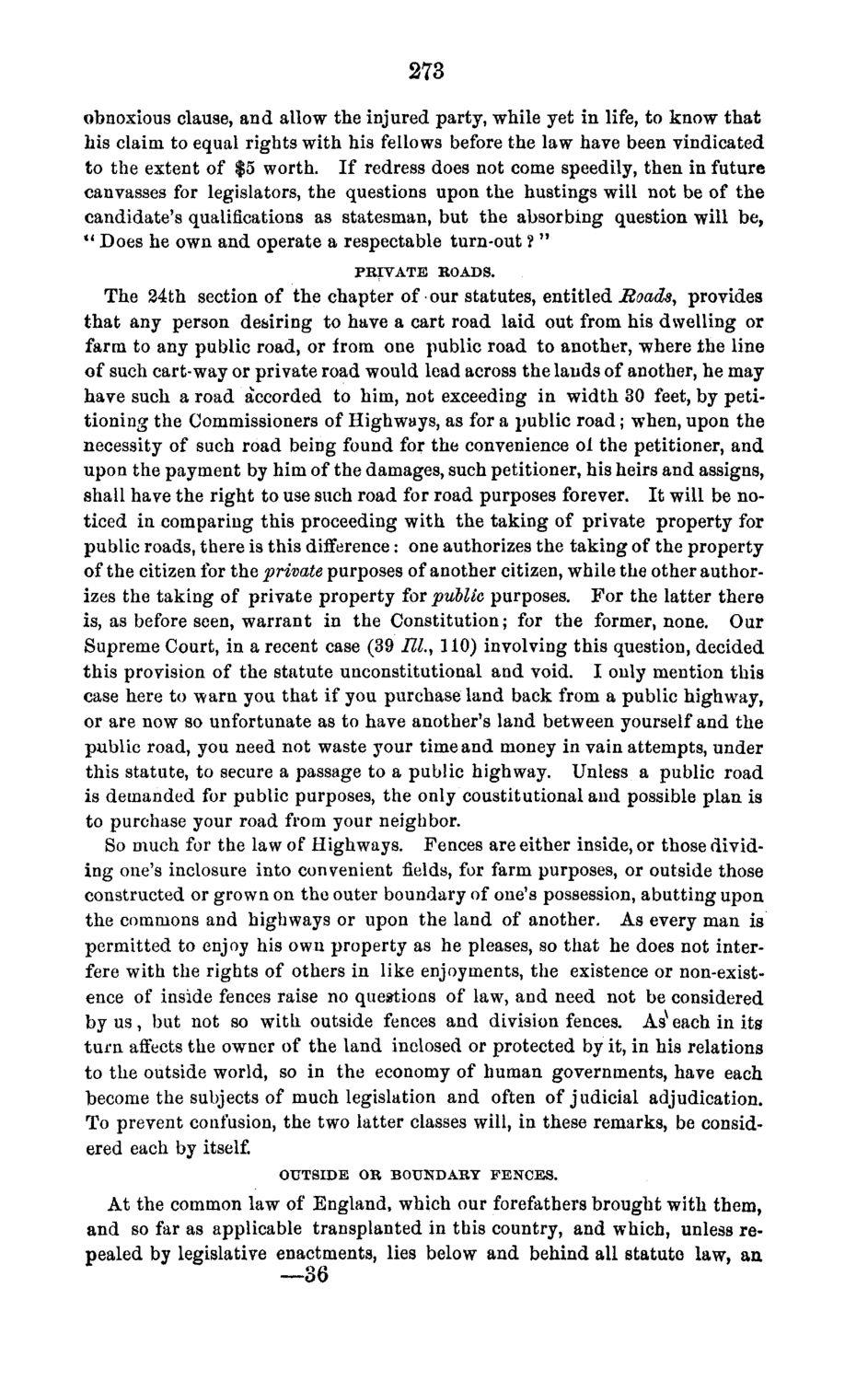| |
| |
Caption: Board of Trustees Minutes - 1870
This is a reduced-resolution page image for fast online browsing.

EXTRACTED TEXT FROM PAGE:
273 obnoxious clause, and allow the injured party, while yet in life, to know that his claim to equal rights with his fellows before the law have been vindicated to the extent of $5 worth. If redress does not come speedily, then in future canvasses for legislators, the questions upon the hustings will not be of the candidate's qualifications as statesman, but the absorbing question will be, " Does he own and operate a respectable turn-out ? " PRIVATE ROADS. The 24th section of the chapter of our statutes, entitled Roads, provides that any person desiring to have a cart road laid out from his dwelling or farm to any public road, or from one public road to another, where the line of such cart-way or private road would lead across the lauds of another, he may have such a road accorded to him, not exceeding in width 30 feet, by petitioning the Commissioners of Highways, as for a public road; wThen, upon the necessity of such road being found for the convenience ol the petitioner, and upon the payment by him of the damages, such petitioner, his heirs and assigns, shall have the right to use such road for road purposes forever. It will be noticed in comparing this proceeding with the taking of private property for public roads, there is this difference: one authorizes the taking of the property of the citizen for the private purposes of another citizen, while the other authorizes the taking of private property for public purposes. For the latter there is, as before seen, warrant in the Constitution; for the former, none. Our Supreme Court, in a recent case (39 III., 110) involving this question, decided this provision of the statute unconstitutional and void. I only mention this case here to warn you that if you purchase land back from a public highway, or are now so unfortunate as to have another's land between yourself and the public road, you need not waste your time and money in vain attempts, under this statute, to secure a passage to a public highway. Unless a public road is demanded for public purposes, the only coustitutional and possible plan is to purchase your road from your neighbor. So much for the law of Highways. Fences are either inside, or those dividing one's inclosure into convenient fields, for farm purposes, or outside those constructed or grown on the outer boundary of one's possession, abutting upon the commons and highways or upon the land of another. As every man is permitted to enjoy his own property as he pleases, so that he does not interfere with the rights of others in like enjoyments, the existence or non-existence of inside fences raise no questions of law, and need not be considered by us, but not so with outside fences and division fences. Asv each in its turn affects the owner of the land inclosed or protected by it, in his relations to the outside world, so in the economy of human governments, have each become the subjects of much legislation and often of judicial adjudication. To prevent confusion, the two latter classes will, in these remarks, be considered each by itself. OUTSIDE OR BOUNDARY F E N C E S . At the common law of England, which our forefathers brought with them, and so far as applicable transplanted in this country, and which, unless repealed by legislative enactments, lies below and behind all statute law, an —36
| |